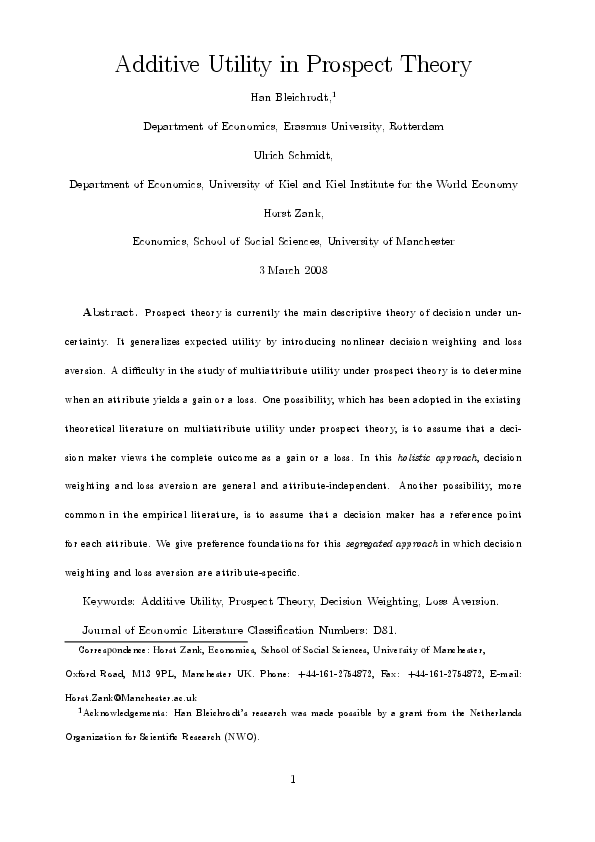Authors
Publication Date
JEL Classification
Key Words
Prospect theory is currently the main descriptive theory of decision under uncertainty. It generalizes expected utility by introducing nonlinear decision weighting and loss aversion. A difficulty in the study of multiattribute utility under prospect theory is to determine when an attribute yields a gain or a loss. One possibility, which has been adopted in the existing theoretical literature on multiattribute utility under prospect theory, is to assume that a decision maker views the complete outcome as a gain or a loss. In this holistic approach, decision
weighting and loss aversion are general and attribute-independent. Another possibility, more common in the empirical literature, is to assume that a decision maker has a reference point for each attribute. We give preference foundations for this segregated approach in which decision weighting and loss aversion are attribute-specific.







